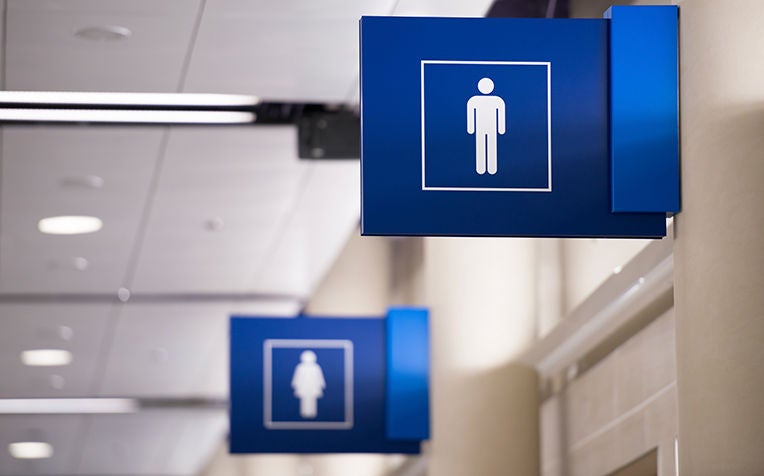
As irritable bowel syndrome (IBS) cannot be cured, IBS treatment focuses on relieving and managing symptoms.
Irritable bowel syndrome (IBS) is a chronic condition which cannot be cured. For this reason, IBS treatment focuses on the relief and management of symptoms. For the majority of patients who have mild symptoms, doctors recommend diet and lifestyle modifications rather than treatment with medication.
For the rest, management can involve a multidisciplinary team, including a psychiatrist, a dietitian, a specialist as well as the family doctor.
For patients with moderate to severe symptoms, medication may be given. This may include anti-diarrhoea medicines (in the case of diarrhoea) or fibre supplements and laxatives (in the case of constipation). Muscle relaxants are commonly prescribed for stomach pain and cramps. Some patients may be prescribed antibiotics for bacterial infection. Patients with anxiety or depression may be prescribed psychiatric drugs.
“IBS is a chronic condition and we don’t have a magic bullet that cures it,” says the Department of Gastroenterology and Hepatology, Singapore General Hospital (SGH), a member of the SingHealth group. “It waxes and wanes so a patient will have good and bad periods.”
With diet and lifestyle modifications, IBS patients can live normal lives. Here are some useful diet and lifestyle tips:
Diet tips for IBS
- Recognise and eliminate trigger foods from your diet. Maintaining a food diary can help. Some known trigger foods for IBS are:
- Oily foods
- Spicy foods
- Alcohol
- Caffeine
- Dairy products
- Carbonated drinks
- Fructose-rich fruit juices
- Polyol-containing artificial sweeteners such as sorbitol, xylitol, mannitol, maltitol and isomalt found in some sugar-free foods. Artificial sweeteners such as aspartame and sucralose are suitable.
- Gas-producing legumes and vegetables such as cabbage, cauliflower, broccoli, green beans.
- Have more soluble fibre which dissolves in water to form a thick gel. Soluble fibre-rich foods include oatmeal, seeds/nuts, citrus fruits and grains like rye. However, some soluble fibre-rich nuts such as cashew and pistachio, and some rye products can increase gas production.
- Drink plenty of water.
- Have foods like yogurt which contain friendly bacteria. If you have lactose intolerance, you can opt for lactose-free yogurt.
- Eat smaller, more frequent meals.
Lifestyle tips for IBS
- Manage stress with meditation and other relaxation activities.
- Maintain a positive attitude.
- Exercise regularly.
- Get adequate sleep.
“A long-term relationship between the physician and the patient is probably the single most important factor in the management of IBS". Oftentimes patients must trust their doctor before they comply with treatment.
THERE IS A STRONG LINK BETWEEN IBS AND PSYCHOLOGICAL DISORDERS ANXIETY, DEPRESSION
“While there are multiple factors leading to irritable bowel syndrome, there is a strong association with psychological disorders such as anxiety and depression. However, it is not always clear whether the anxiety or depression causes IBS or results from the IBS symptoms,” says the Department of Gastroenterology & Hepatology.
“IBS is a common condition that affects 9 per cent of the population in Singapore. In some other countries it can affect up to 20 per cent.”
IBS can affect people of any age but it has been found to be more common in those aged 20-30.
SYMPTOMS OF IRRITABLE BOWEL SYNDROME (IBS)
The symptoms of IBS range from mild to severe. They are:
- Stomach pain or cramping
- Diarrhoea
- Constipation
- Incomplete bowel clearance
- Bloating
- Gas
- Mucus in the stool
Other less common symptoms include tiredness, backache, urinary frequency, and poor sleep.
For the vast majority of patients, the symptoms are quite mild and don’t require treatment. However chronic recurrent symptoms can cause discomfort and inconvenience which adversely affect quality of life.
Diagnosis of IBS is based on the patient’s medical history as well as routine tests. A patient who suffers from abdominal pain or discomfort associated with altered bowel habits is diagnosed with IBS when routine tests such as blood tests, scans and endoscopy fail to detect any other problem.
Patients who have other symptoms such as blood in the stools and unexplained weight loss may require further investigation to rule out more serious conditions such as colon cancer.
RISK FACTORS OF IBS
The exact cause of IBS is unknown. However, a combination of physiological and psychological factors may play a role in its development. These risk factors include:
- Overly sensitive nerves in the colon
- Abnormalities in the nervous system or colon
- Food intolerances
- Bacterial overgrowth or unfriendly bacteria in the gut
- Anxiety
- Depression
THE LINK BETWEEN ANXIETY, DEPRESSION AND IBS
There is a strong link between IBS on the one hand, and anxiety and depression on the other hand. However, it is unclear which one comes first.
“Psychological disorders can affect the way we perceive discomfort coming from the intestinal tract.”
A study carried out by SGH found that almost half of 345 IBS patients screened from November 2010 to October 2011 had psychological disorders.
The most common psychological disorder associated with IBS is anxiety, followed by depression.
“We now screen all our severe IBS patients for psychological disorders. When we find a psychological disorder we refer the patient to a psychiatrist or psychologist for intervention. Understanding this condition can give patients the reassurance to live with this condition. A lot of patients want reassurance that this is not cancer."
Ref: S13

















 Get it on Google Play
Get it on Google Play